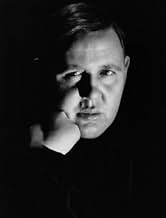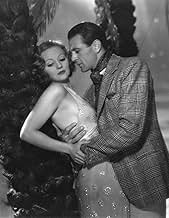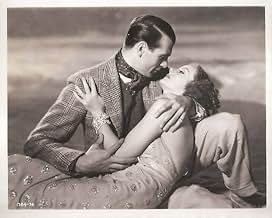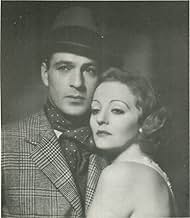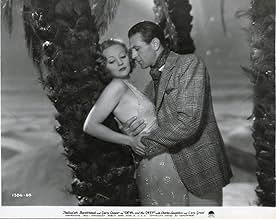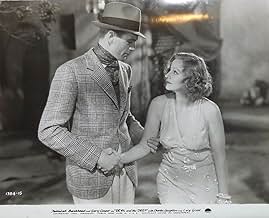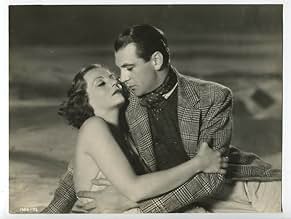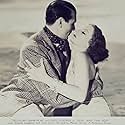VALUTAZIONE IMDb
6,3/10
934
LA TUA VALUTAZIONE
Aggiungi una trama nella tua linguaA man sets out for revenge after learning of his wife's affair.A man sets out for revenge after learning of his wife's affair.A man sets out for revenge after learning of his wife's affair.
- Regia
- Sceneggiatura
- Star
- Premi
- 1 vittoria in totale
James Dugan
- Condover
- (as Jimmie Dugan)
Peter Brocco
- Wireless Operator
- (non citato nei titoli originali)
Jack Gardner
- Submarine Crewman
- (non citato nei titoli originali)
John George
- Man in Crowd
- (non citato nei titoli originali)
Henry Guttman
- Submarine Crewman
- (non citato nei titoli originali)
Fred Kohler Jr.
- Submarine Crewman
- (non citato nei titoli originali)
Anderson Lawler
- Sailor
- (non citato nei titoli originali)
Lucien Littlefield
- Shopkeeper
- (non citato nei titoli originali)
Recensioni in evidenza
Devil And The Deep finds Tallulah Bankhead cast with two Hollywood icons, Gary Cooper and the up and coming Cary Grant as the wife of a submarine commander who has a fling with both guys. But the one who really steals the film in what was his American film debut with Paramount is Charles Laughton.
Although The Old Dark House was made first, Paramount held up its release for Devil And The Deep, the better to give Laughton exposure with a proved box office champion in Gary Cooper. Laughton is stunning as an insanely jealous husband.
I think a lot of Devil And The Deep may have been left on the cutting room floor. In the beginning it's made quite clear that Tallulah is a woman of easy virtue. But later on the tone of the film abruptly shifts so that your sympathies shift from Laughton to her. The story loses a lot of coherency with that.
Still the performances are great and the climax on board the submarine is very well staged. Definitely a must for a fan of any of the stars in the quartet.
Although The Old Dark House was made first, Paramount held up its release for Devil And The Deep, the better to give Laughton exposure with a proved box office champion in Gary Cooper. Laughton is stunning as an insanely jealous husband.
I think a lot of Devil And The Deep may have been left on the cutting room floor. In the beginning it's made quite clear that Tallulah is a woman of easy virtue. But later on the tone of the film abruptly shifts so that your sympathies shift from Laughton to her. The story loses a lot of coherency with that.
Still the performances are great and the climax on board the submarine is very well staged. Definitely a must for a fan of any of the stars in the quartet.
Cary Grant's charm and looks he displayed in his first movie, 1932's "This Is The Night," earned him a role in his next feature film, his second, as a potential love-interest to the wife of a naval ship commander in August 1932's "Devil and the Deep." Grant plays Lt. Jaeckel under the command of Charles Strum (Charles Laughton), a deeply flawed and extremely jealous husband to Diana Sturm (Talluhlah Bankhead). Based on Maurice Larrouy's novel, 'Sirenes et Tritons," Jaeckel sparks Strum's insane jealousy, which is unfounded by his wife's disinterest in the lieutenant. Jaeckel is quickly shipped out early in the film and is replaced by another lieutenant, Sempter (Gary Cooper), who it turns out gets kissy-wissy with Diana. Actress Bankhead said she accepted the role because she really wanted to get physically close to Cooper.
"Devil and the Deep" was Hollywood's first detailed look at the insides of a submarine. Once the U-Boat's commander Strum has his wife and her officer boyfriend Sempter underway in the underwater sub, he sets forth his plans to kill the lovers, taking along his crew for a suicidal maneuver. Laughton is clearly the star in the movie: the actor's menacing behavior fits the deranged Strum perfectly to a tee. The English-born and raised Laughton began acting on the stage in 1926 while dabbling in film during the late 1920s before securing his first major role in "Devil and the Deep." Tallulah Bankhead, primarily a stage actress, found acting in movies to be a complete bore. Her first two years in Hollywood, 1931 and 1932, were marked with her yearning to return to the live stage. "Devil and the Deep" was her second-to-last picture before reemerging on the screen twelve years later in Alfred Hitchcock's 1944 "Lifeboat."
"Devil and the Deep" marked the return to Hollywood for Gary Cooper. Burnt out and drained from an aggressive schedule of acting in ten movies within a two-year span, Cooper suffered from anemia and jaundice from his poor dietary habits. He decided to make a break from Los Angeles, feeling depressed and lonely. Reconnecting with an acquaintance, American heiress Dorothy Taylor, now a countess living in Rome, Italy, Cooper rehabilitated himself with her good food and great advice on nutrition. Developing a continental appreciation for the arts and customs of Europe, the actor's rough Western edges were smoothed out by the countess' patient tutorship. She took him on a ten-week big game safari hunting trip in Kenya, where he bagged a variety of trophy animals. His love of the wilderness kick in during the trip. In his role as the submarine's second-in-command, Cooper appears more comfortable and restrained in his role as the leader of the mutiny when it becomes obvious its commander is attempting to kill everyone on board.
"Devil and The Deep" is the only movie, besides a brief appearance in 1933's "Alice in Wonderland," Cooper and Grant ever shared credits in the same movie. This was a bit ironic since Grant had Cooper in mind when he selected his stage name Cary after the actor from Montana.
"Devil and the Deep" was Hollywood's first detailed look at the insides of a submarine. Once the U-Boat's commander Strum has his wife and her officer boyfriend Sempter underway in the underwater sub, he sets forth his plans to kill the lovers, taking along his crew for a suicidal maneuver. Laughton is clearly the star in the movie: the actor's menacing behavior fits the deranged Strum perfectly to a tee. The English-born and raised Laughton began acting on the stage in 1926 while dabbling in film during the late 1920s before securing his first major role in "Devil and the Deep." Tallulah Bankhead, primarily a stage actress, found acting in movies to be a complete bore. Her first two years in Hollywood, 1931 and 1932, were marked with her yearning to return to the live stage. "Devil and the Deep" was her second-to-last picture before reemerging on the screen twelve years later in Alfred Hitchcock's 1944 "Lifeboat."
"Devil and the Deep" marked the return to Hollywood for Gary Cooper. Burnt out and drained from an aggressive schedule of acting in ten movies within a two-year span, Cooper suffered from anemia and jaundice from his poor dietary habits. He decided to make a break from Los Angeles, feeling depressed and lonely. Reconnecting with an acquaintance, American heiress Dorothy Taylor, now a countess living in Rome, Italy, Cooper rehabilitated himself with her good food and great advice on nutrition. Developing a continental appreciation for the arts and customs of Europe, the actor's rough Western edges were smoothed out by the countess' patient tutorship. She took him on a ten-week big game safari hunting trip in Kenya, where he bagged a variety of trophy animals. His love of the wilderness kick in during the trip. In his role as the submarine's second-in-command, Cooper appears more comfortable and restrained in his role as the leader of the mutiny when it becomes obvious its commander is attempting to kill everyone on board.
"Devil and The Deep" is the only movie, besides a brief appearance in 1933's "Alice in Wonderland," Cooper and Grant ever shared credits in the same movie. This was a bit ironic since Grant had Cooper in mind when he selected his stage name Cary after the actor from Montana.
With a cast like this - Cooper, Bankhead, Laughton, Grant - I just had to check out Devil and the Deep. This is the earliest Grant film I've seen and he has already established his trademark speech patterns and carriage that would be with him for his entire career. Needless to say his does a fine job. Cooper looks great but his performance is a bit flat, mostly due to the script and direction. Laughton is very good and his character brings a lit to the film. Bankhead does a fine job but her character is so weak willed and passive that it's hard not to get a bit frustrated with her character let alone root for her. It is an odd little film for sure but one that I think is still worth checking out mostly for the cast.
'Devil and the Deep's' biggest draw was the cast. The most interesting being Charles Laughton in his first American film. Have also liked Tallulah Bankhead in other films, one of her best being 'Lifeboat', and Gary Cooper gave a lot of great performances later on when his acting style had fully developed ('High Noon', 'The Westerner' etc). So did Cary Grant. Did like the premise, which did have potential to be quite tense and intriguing and also the creepy-sounding title.
It is a shame that 'Devil and the Deep' isn't better known. For all its faults, and it has them, it is a nice, interesting film that sees most of the cast on great form (the cast are not just the main interest point of 'Devil and the Deep' but also the primary reason as to why the film just about works) and does a lot right. Not everything works and the film could have done more with its subject, though it doesn't waste it, but the flaws are outweighed by the good things.
A lot works. The best asset is the cast. Bankhead is intensely riveting in her role without going too over the top. Laughton is genuinely menacing and looked as though he was enjoying himself, the chemistry between him and Bankhead has the right amount of intensity needed. Grant is in a very early role and acquits himself very well and is charming and suave, something that he specialised in throughout his career and refined not long after this. It is nicely directed by Marion Gering (an unfamiliar director to me), especially towards the end and in the interactions between Bankhead and Laughton.
Production values are generally not too elaborate while never looking cheap, the atmospheric and suitably claustrophobic photography and eerie lighting coming off best. The music is suitably haunting without being intrusive while not having much that is distinguished. The script is patchy and undernourished at times but generally is intriguing and to me it didn't get too over-heated. The story is tautly paced relatively and carried by its atmosphere, the tense climax stands out.
Sadly, Cooper really isn't at his best. Actually thought that he was very weak and wooden and he certainly went on to much better things. To be fair though, he had a very shallow and dull character and awfully clunky dialogue (this was where the script was patchy) to work with.
It was a little bland at the start and the film changes gear very abruptly and the second half generally felt incomplete, hence some choppiness.
Bottom line, pretty good and deserving to be better known. 7/10
It is a shame that 'Devil and the Deep' isn't better known. For all its faults, and it has them, it is a nice, interesting film that sees most of the cast on great form (the cast are not just the main interest point of 'Devil and the Deep' but also the primary reason as to why the film just about works) and does a lot right. Not everything works and the film could have done more with its subject, though it doesn't waste it, but the flaws are outweighed by the good things.
A lot works. The best asset is the cast. Bankhead is intensely riveting in her role without going too over the top. Laughton is genuinely menacing and looked as though he was enjoying himself, the chemistry between him and Bankhead has the right amount of intensity needed. Grant is in a very early role and acquits himself very well and is charming and suave, something that he specialised in throughout his career and refined not long after this. It is nicely directed by Marion Gering (an unfamiliar director to me), especially towards the end and in the interactions between Bankhead and Laughton.
Production values are generally not too elaborate while never looking cheap, the atmospheric and suitably claustrophobic photography and eerie lighting coming off best. The music is suitably haunting without being intrusive while not having much that is distinguished. The script is patchy and undernourished at times but generally is intriguing and to me it didn't get too over-heated. The story is tautly paced relatively and carried by its atmosphere, the tense climax stands out.
Sadly, Cooper really isn't at his best. Actually thought that he was very weak and wooden and he certainly went on to much better things. To be fair though, he had a very shallow and dull character and awfully clunky dialogue (this was where the script was patchy) to work with.
It was a little bland at the start and the film changes gear very abruptly and the second half generally felt incomplete, hence some choppiness.
Bottom line, pretty good and deserving to be better known. 7/10
Wow does this film have some odd casting. While practically everyone aboard the submarine speaks American style English, Charles Laughton and Cary Grant are cast in two of the leading roles despite their accents. This sort of casting happened relatively frequently in older Hollywood films, but it is confusing to the viewer.
The film begins with Charles Laughton married to Tallulah Bankhead. It seems their friends have been talking about Tallulah's behaviors. Common knowledge is that she is cheating on poor old Charlie, though it turns out this is not true. Laughten is exceptionally paranoid and delights in playing like the slighted husband by starting these rumors himself! Later, he accuses one of his officers (Cary Grant) of committing adultery with Tallulah and delights in destroying Grant's career--even though the man did nothing inappropriate.
In response to Laughton's cruelty, Tallulah runs off and is rescued by dashing young Gary Cooper as she runs amok in an Arabian town. He falls for her but she rebuffs his advances because she's a decent woman. However, she does kiss him and soon makes her escape back home. Soon afterward, Cooper reports to her home--it seems he's the officer who's replacing Grant. However, seeing that his nice commanding officer is married to a woman that let him kiss her, he assumed (incorrectly) that Talullah is a cheat--not understanding that Laughton is certifiably insane.
Talullah comes on board the submarine that will be sailing later that night in order to try to explain herself to Cooper. However, when Laughton sees she's on board, he orders the boat to sail immediately, as he sees an insane chance to punish the two "lovers"--leading to a very exciting final portion of the film. In fact, from then on, the film is at its best. The final moments aboard the ship were exceptionally well done and Laughton's final scene quite memorable. Since this film was made "Pre-Production Code", the scene is particularly graphic and exciting.
Overall, although the film starts a bit slowly, it's a dandy film that combines a naval film with a psychological drama. I must admit that the final five minutes or so of the film seemed a tad awkward, but what proceeded was exciting and it's a heck of a good film.
The film begins with Charles Laughton married to Tallulah Bankhead. It seems their friends have been talking about Tallulah's behaviors. Common knowledge is that she is cheating on poor old Charlie, though it turns out this is not true. Laughten is exceptionally paranoid and delights in playing like the slighted husband by starting these rumors himself! Later, he accuses one of his officers (Cary Grant) of committing adultery with Tallulah and delights in destroying Grant's career--even though the man did nothing inappropriate.
In response to Laughton's cruelty, Tallulah runs off and is rescued by dashing young Gary Cooper as she runs amok in an Arabian town. He falls for her but she rebuffs his advances because she's a decent woman. However, she does kiss him and soon makes her escape back home. Soon afterward, Cooper reports to her home--it seems he's the officer who's replacing Grant. However, seeing that his nice commanding officer is married to a woman that let him kiss her, he assumed (incorrectly) that Talullah is a cheat--not understanding that Laughton is certifiably insane.
Talullah comes on board the submarine that will be sailing later that night in order to try to explain herself to Cooper. However, when Laughton sees she's on board, he orders the boat to sail immediately, as he sees an insane chance to punish the two "lovers"--leading to a very exciting final portion of the film. In fact, from then on, the film is at its best. The final moments aboard the ship were exceptionally well done and Laughton's final scene quite memorable. Since this film was made "Pre-Production Code", the scene is particularly graphic and exciting.
Overall, although the film starts a bit slowly, it's a dandy film that combines a naval film with a psychological drama. I must admit that the final five minutes or so of the film seemed a tad awkward, but what proceeded was exciting and it's a heck of a good film.
Lo sapevi?
- QuizIn 1932, Tallulah Bankhead told an interviewer that she only accepted this role so that she could "f*ck Gary Cooper."
- Citazioni
Cmdr. Charles Sturm: [to Lt Sempter] It must be a happy thing to look like you do. I suppose women love you. I've never had that. Must be a happy thing.
- Curiosità sui creditiAnd introducing CHARLES LAUGHTON The eminent English character actor in the role of THE COMMANDER
- ConnessioniFeatured in MsMojo: Top 10 Biggest Old Hollywood Scandals (2023)
I più visti
Accedi per valutare e creare un elenco di titoli salvati per ottenere consigli personalizzati
- How long is Devil and the Deep?Powered by Alexa
Dettagli
- Data di uscita
- Paese di origine
- Lingua
- Celebre anche come
- Devil and the Deep
- Luoghi delle riprese
- Azienda produttrice
- Vedi altri crediti dell’azienda su IMDbPro
- Tempo di esecuzione1 ora 18 minuti
- Colore
- Proporzioni
- 1.37 : 1
Contribuisci a questa pagina
Suggerisci una modifica o aggiungi i contenuti mancanti

Divario superiore
By what name was Il diavolo nell'abisso (1932) officially released in India in English?
Rispondi
